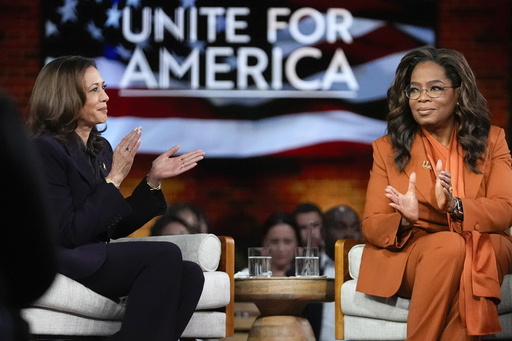
WASHINGTON — Following Joe Biden’s withdrawal from the presidential race and Kamala Harris’s entrance, an influx of Zoom meetings emerged, engaging hundreds of thousands and significantly boosting her bid for the Democratic nomination. Now, organizers are working to convert that surge of online enthusiasm into traditional voting initiatives, including phone banking and grassroots canvassing. A diverse network of volunteers has developed independently of the Harris campaign, focused on rallying both local and online communities in support of the vice president.
Individuals are sending postcards, texting acquaintances, canvassing in swing states, crafting friendship bracelets with campaign messages, and engaging in other forms of involvement that they had not previously experienced. The pivotal question remains: will the energetic Zoom meetings, which captured widespread attention during the summer among various demographics—including Black women, Black men, white women, and even Taylor Swift fans—serve as a long-lasting force or merely a fleeting moment in the campaign against Republican nominee Donald Trump?
Jaime Lopez, the director of digital coalitions for the Harris campaign, asserted that these volunteer groups could play a significant role in securing a victory. “They’re helping us mobilize and engage people in a way that we haven’t seen before, and they’re crucial to our path to victory,” he stated.
The flood of volunteers began with a Zoom call aimed at white women, with Mary Catherine Tipton, a 33-year-old from Maryland, recalling the moment. Participating in one session with 164,000 attendees, she described the experience as “inspirational,” feeling a strong sense of privilege and opportunity. Tipton, a former teacher, reflected on her students with undocumented family members and the feelings of uncertainty that arose after Trump’s victory over Hillary Clinton in 2016. Determined to avoid feeling blindsided again, she resolved to venture out of her comfort zone and engage others about the election.
Starting with her bridal party and expanding to include friends and family, Tipton discussed mobilizing for the election and even spent time canvassing in York, Pennsylvania. Despite the challenges in connecting with voters door-to-door, she expressed happiness if her efforts made even a slight difference.
The movement that encouraged first-time volunteers like Tipton ignited on July 21, coinciding with Biden’s endorsement of Harris. On that day, consultant Jotaka Eaddy hosted a Zoom meeting under her organization, Win With Black Women, where, against the backdrop of increasing interest in supporting Harris, approximately 44,000 people participated, significantly exceeding the usual turnout. The call turned into a heartfelt gathering where participants celebrated with prayers, songs, and generated over $1 million.
The Zoom gatherings quickly became a platform for vibrant support for Harris at a crucial time when party leaders were unsure about how to proceed after Biden’s departure. Eaddy emphasized that the focus of the gatherings was solely on Kamala Harris, without any distractions.
Following the initial call, another Zoom session for Black men attracted 54,000 participants and raised an additional $1.4 million. The next day, Shannon Watts, a gun control advocate, quickly mobilized a call aimed at white women, which saw an impressive turnout of more than 164,000 participants. The progressive group Indivisible took the initiative to engage these participants further, establishing regular “Women Wednesdays for Harris.”
Leah Greenberg, co-founder of Indivisible, highlighted the importance of these virtual meetings as entry points for many people who might not typically partake in political campaigns: “We want to try to keep them engaged. We want to ensure they’re not just going to one Zoom.”
Rachel Roberts, inspired by a similar experience, characterized the white women’s Zoom as a “wake-up call,” fueling her commitment to ensuring Trump doesn’t return to power. Having previously stirred political interest as a child in the 1984 elections, Roberts now actively prepares for local gatherings with fellow Harris supporters, making postcards, phone calls, and crafting homemade campaign buttons and bracelets to sustain momentum.
Various affinity groups have also emerged, such as the “Swifties 4 Kamala,” which engages fans of Taylor Swift in political advocacy by sending newsletters and conducting extensive outreach with millions of phone calls and texts about the election.
Annie Wu Henry, a digital strategist assisting with the organization, believes these methods provide a unique avenue to engage voters, emphasizing community building over more transactional traditional outreach methods.
Despite some skepticism towards these informal Zoom gatherings, Harris’s team recognized their potential and began communicating regularly with the group leaders to keep them informed about volunteer activities and campaign updates. An event hosted by Oprah Winfrey brought many of these groups together, promising renewed collaborative efforts.
Kamala Harris acknowledged the significance of these grassroots movements, stating, “You are showing that this is what the people want” and expressing gratitude for the solidarity displayed. Eaddy expressed her belief that these connections offer hope for the future, enhanced by meaningful tokens such as beaded friendship bracelets gifted to her. “This is very real,” she affirmed. “It’s extremely powerful.”
